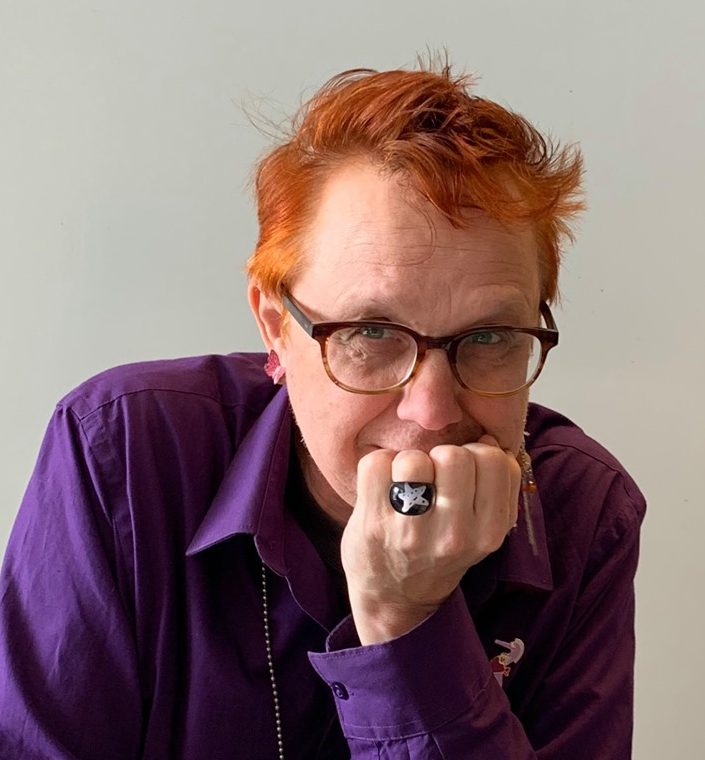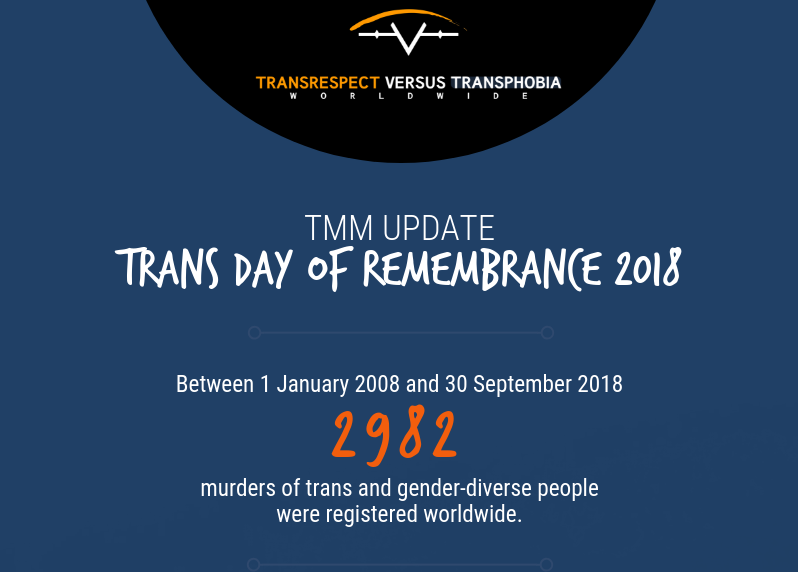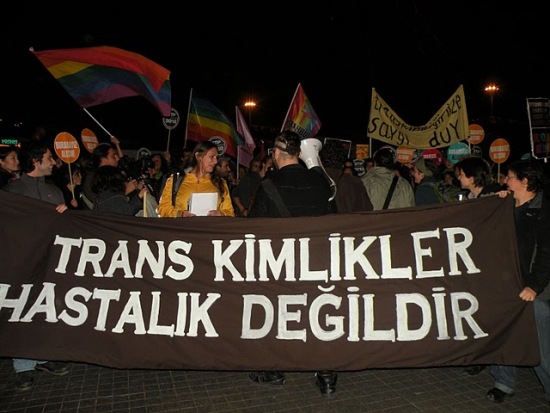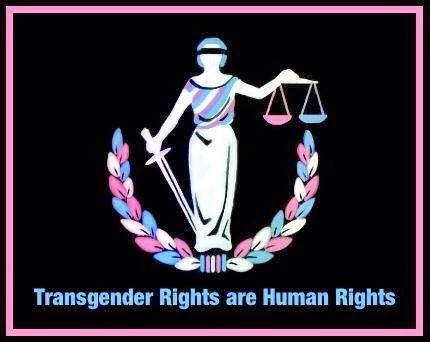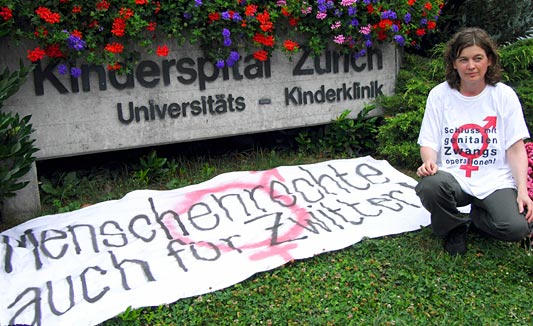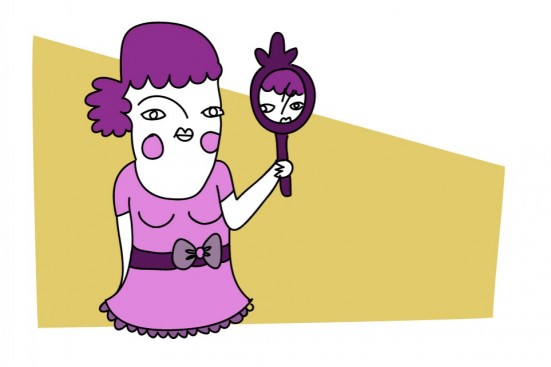Reactie Vreerwerk op Wetsvoorstel Wijziging voorwaarden geslachtsregistratie
Vreerwerk is enthousiast over enkele onderdelen van het voorstel en kritisch over een aantal andere. De kern van onze kritiek ligt in gebrek aan respect voor mensenrechten en autonomie van degenen om wie het gaat. Hun noden en wensen zijn niet genoeg gehoord. Ook zitten er enkele rare oplossingen in het wetsvoorstel.
We bespreken ze hieronder puntsgewijs.
Vooruitgang
Waar we zeer over te spreken zijn, is het afschaffen van de zogeheten deskundigenverklaring. Daar heeft de transgemeenschap noch hun vertegenwoordigers ooit om gevraagd. Bij de evaluatie blijkt de verklaring ook geen enkele meerwaarde te hebben, mensen op kosten te jagen en eigenlijk via een achterdeur toch weer extra belang te geven aan een evt medisch traject.
Ook tevreden zijn we met de verplaatsing van de procedure van de gemeente van geboorte naar de woonplaats. Dit scheelt reiskosten en moeite voor de aanvrager.

Zorgvuldigheid
De wetgever beroept zich voor de reden om de genderwijziging voor minderjarigen via de kinderrechter te laten lopen, op zorgvuldigheid. Dit met een beroep op art 3.2 van het IVRK (Internationaal Verdrag. Voor de Rechten van het Kind). Dit luidt:
De Staten die partij zijn, verbinden zich ertoe het kind te verzekeren van de bescherming en de zorg die nodig zijn voor zijn of haar welzijn, rekening houdend met de rechten en plichten van zijn of haar ouders, wettige voogden of anderen die wettelijk verantwoordelijk voor het kind zijn, en nemen hiertoe alle passende wettelijke en bestuurlijke maatregelen.
Niet geheel onbegrijpelijk redeneert de overheid hier voorzichtig. De belangen van ouders en verzorgers moeten ook worden meegenomen. Alleen gaat dat mank. Want door de gemaakt keuze ligt de nadruk op de belangen en problemen. Van de volwassenen. In plaats van op de keuzevrijheid en de belangen van het kind.
De zwaarte die het wetsontwerp hier geeft – tezamen met een keuze voor de rechter – lijkt te wijzen op een idee dat het best zwaar is voor het kind, en dat het kind misschien niet zeker is, of dat de keuze grote gevolgen heeft voor het kind. Dat hoeft niet zo te zijn. Het betreft puur een sociale en juridische verandering, en er is geen enkele sprake is van medisch ingrijpen. Er is geen mens overboord als de aanvrager later tot de realisatie komt dat de genomen beslissing niet (meer) voldoet en deze wil terugdraaien. Dat betekent niet – zoals de wetgever lijkt te geloven in art 28aa – dat men spijt heeft van de keuze, dat de keuze fout was, maar dat de keuze niet meer past. En vaak blijkt dan dat de aanvrager zich meer in nonbinaire of genderqueere richting ontwikkelt dan tot man of vrouw. (Ehrensaft, de Vries, Steensma). En dat is legitiem. Daarbij hoort dan ook de mogelijkheid de gendermarker te kunnen wijzigen.
De keuze voor artikel 3.2 indiceert een groot gewicht voor de volwassenen die betrokken zijn. Alleen, wanneer je het General Comment 14 leest en wanneer je weet hoe zeker trans* kinderen zijn, dan lijkt het erg op zorgen van de volwassenen die doorgaans cisgender zijn en zich meestal geen goede voorstelling kunnen maken van de zwaarte van het Anders zijn, de zorgen zijn die het zwaarst tellen. En dat is niet terecht.
De kinderen die al jong een wijziging van hun naam en gender willen en via ouders/verzorgers aanvragen, blijken volgens de literatuur grotendeels ook achter deze keuze te blijven staan. Het gaat hier uitsluitend om de beperkte groep die zeker is dat ze het verkeerde hokje hebben gekregen. Er zijn ook kinderen die deze keuze niet maken omdat ze niet overtuigd zijn dat ze klopt. In deze procedure blijft die groep buiten beeld.
Een snelle en eenvoudige procedure om van genderregistratie te kunnen veranderen is ook voor kinderen onder de 16 van belang. Omdat de overtuiging dat het bij geboorte toegekende gender niet klopt met hoe men zich voelt en wie men is, al heel jong kan optreden, pleiten wij tegen een leeftijdsgrens voor de juridische verandering. Mocht de wetgever per se een leeftijdsgrens willen opnemen dan is vier jaar geschikt, want het moment dat het kind naar het basisonderwijs gaat. Anderen noemen wel eens twaalf jaar, wanneer een kind naar het secundair onderwijs gaat. Daar zijn wij niet voor (wat ons betreft helemaal geen leeftijdsgrens) maar we kunnen ons er iets bij voorstellen als in de praktijk het kind wel sociaal van genderrol kan veranderen gedurende het basisonderwijs en eventuele certificaten en testen op de nieuwe naam kunnen worden overgeschreven. Waar er sprake van is, moet het kind dan wel meteen bij inschrijven voor secundair onderwijs met de juiste, nieuwe gegevens kunnen worden ingeschreven en worden bejegend. De school en andere instellingen (sportclubs bijvoorbeeld) hebben geen recht op kennis van de oude situatie. Daarbij is sprake van een dode naam en een dood gender. Men is dat niet meer.
Nochtans blijft in deze procedure een aanzienlijke groep buitenspel staan. Namelijk de groep die zeker is dat hun originele genderregistratie niet klopt, maar die niet van M naar V kunnen of andersom, want dat klopt niet voor hen. Een deel van die groep zal zich verder ontwikkelen richting man of vrouw, en een deel zal genderqueer of non-binair blijken te zijn. Iets wat nu het bekender is ook steeds sneller wordt opgepikt, ook door kinderen. Wanneer ze zouden kunnen zouden zij wel voor de X kiezen. Die geeft vooral aan ”Ik ben niet dit, en ik ben niet dat. Ik ben wat anders”. Nederlands onderzoek van een aantal jaren geleden geeft aan dat dit steeds vaker voorkomt. De groep genderqueer jongeren groei al sinds begin vorig decenium. Zij worden beter bediend wanneer de wetgever overgaat tot het instellen van een categorie “onbekend, irrelevant”. Diverse landen binnen en buiten Europa hebben deze mogelijkheid gelegaliseerd, en voorzien hiermee in een behoefte en erkennen dat gender door mensen is bedacht (een” sociale constructie” is). Landen waarvoor dit geldt zijn Denemarken Ierland Malta, Nieuw Zeeland, Australië, Nepal, India, Argentinië. Verder geldt het ook voor de staat New York (USA) en de provincie Ontario (Canada).
Betrouwbaarheid van registratie
De memorie van toelichting rept van de noodzaak van een betrouwbare registratie. In dit kader werpt dat de vraag op waarom de registratie niet betrouwbaar als er meermaals gewijzigd wordt? Registratie geeft stand van zaken weer en eventueel de historie. Zie bijvoorbeeld een huwelijksregister. De wetgever hecht een te groot belang aan genderregistratie. De noodzaak daarvan valt te betwisten. Dat iets bestaat is geen reden om het te handhaven. De wereld is niet statisch, tenslotte. In eerdere discussies is ook aangegeven dat er eenvoudige en betere oplossingen zijn. Het vergt alleen wat omdenken.
Mensenrechtelijk kader
In maart 2007 verraste een panel aan mensenrechtenexperts de wereld met de Yogyakarta Beginselen.Deze set van 29 Beginselen behandelen thematisch de toepasbaarheid van mensenrechten jurisdictie en jurisprudentie voor problemen van LHBTI mensen. Onder hen oud-VN mensenrechtencommissaris en president van Ierland, Mary Robinson; hoogleraar Toegepaste Mensenrechten, co-director van het Human Rights Law Centre van University of Nottingham en toenmalig lid UN Human Rights Committee (dat de naleving van het BUPO verdrag controleert) Michael O’Flaherty; Maina Kiai (oud VN mandataris voor vrijheid van vereniging en vergadering); en Vitit Muntarbhorn, de eerste VN mandataris voor LHBTI rechten. De Yogyakarta Beginselen zijn als zodanig een verzameling en een uitwerking van bestaande wetgeving. De Nederlandse regering heeft, bij monde van minister Verhagen van Buitenlandse Zaken, aangegeven als beleid de Beginselen te gebruiken. Ter gelegenheid van de tiende verjaardag is een uitbreiding gekomen, die de vooruitgang in ontwikkelingen in internationaal recht op dit thema meenemen en reflecteren. Deze update van 2017 bevestigt het belang van de originele Beginselen en breidt ze uit met 9 nieuwe Beginselen en 111 extra verplichtingen voor staten. Wij willen vooral wijzen op de vereisten onder Beginsel 3, Het recht op erkenning voor de wet:
Beginsel 3: “Eenieder heeft overal het recht op erkenning als een persoon voor de wet. Mensen van verschillende seksuele geaardheden en genderidentiteiten genieten handelingsbekwaamheid op alle gebieden van het dagelijks bestaan. De seksuele geaardheid en genderidentiteit die eenieder bij zichzelf vaststelt,zijn van wezenlijk belang voor de persoonlijkheid en behoren tot de meest fundamentele aspecten van zelfbeschikking, waardigheid en vrijheid. Niemand mag worden gedwongen om een medische behandeling te ondergaan, zoals een geslachtsveranderingsoperatie, sterilisatie of hormoontherapie, als voorwaarde voor wettelijke erkenning van de genderidentiteit. Geen enkele status, zoals huwelijk of ouderschap, mag als zodanig worden ingeroepen ter voorkoming van de wettelijke erkenning van iemands genderidentiteit. Op niemand mag druk worden uitgeoefend om zijn seksuele geaardheid of genderidentiteit te verbergen, te onderdrukken of te ontkennen.”
Alle staten moeten:
B. Alle noodzakelijke wettelijke, bestuursrechtelijke en andere maatregelen nemen om de door een ieder bij zichzelf vastgestelde genderidentiteit volledig te respecteren en wettelijk te erkennen;
C. Alle noodzakelijke wettelijke, bestuursrechtelijke en andere maatregelen nemen om te zorgen voor procedures waarbij alle door de Staat verstrekte identiteitsbewijzen waarin iemands gender/geslacht is vermeld – waaronder geboorteakten, paspoorten, kiesregisters en andere documenten – de door die persoon beleefde en bij hemzelf vastgestelde genderidentiteit weergeven;
Dit geeft helder aan dat het gaat om de “door ieder bij zichzelf vastgestelde genderidentiteit” dus inclusief die, die buiten de M/V dichotomie vallen. De Expanded Principles (YP+10) geven dit ook helder aan in Beginsel 31 (bij gebrek aan officiële vertaling hier in het Engels geciteerd):
(Principle 31) B) Ensure access to a quick, transparent and accessible mechanism to change names, including to gender-neutral names, based on the self-determination of the person;
B) Ensure access to a quick, transparent and accessible mechanism to change names, including to gender-neutral names, based on the self-determination of the person;
C) While sex or gender continues to be registered:
i. Ensure a quick, transparent, and accessible mechanism that legally recognises and affirms each person’s self-defined gender identity;
ii. Make available a multiplicity of gender marker options;
iii. Ensure that no eligibility criteria, such as medical or psychological interventions, a psycho-medical diagnosis, minimum or maximum age, economic status, health, marital or parental status, or any other third party opinion, shall be a prerequisite to change one’s name, legal sex or gender;
Het moge duidelijk zijn dat het voorliggende voorstel niet voldoet aan de eisen die door de Yogyakarta Beginselen en daarmee mensenrechtenwetgeving, worden gesteld. WIj dringen dan ook aan op het bijstellen van het wetsontwerp in de richting van het internationaal normatieve kader van de mensenrechten.
Puntsgewijs commentaar
Artikel 1:20f: ad 3. Het is ons niet duidelijk waartoe deze opslag dient? Waarom 18 maanden? Hoe is toegang geregeld?
Artikel 1:28 lid 1: Het voorstel vraagt 4-12 weken voor in vivo bevestiging. Wij zien dit graag gewijzigd naar 2-12 weken. Er is geen goede reden waarom vier weken wachten noodzaak is. Aangezien er geen misbruik is gesignaleerd internationaal, is een vrij lange wachttijd ook niet nodig. Dat Denemarken een half jaar wachttijd kiest is irrelevant en een statistische afwijking. Overal elders is het veel korter.
Artikel 1:28 lid 3: Onzes inziens is dit niet voldoende voor het oplossen van alle knelpunten. Wat te doen met vluchtelingen die geen geboorteakte kunnen overleggen want situatie in thuisland is er niet naar? Zij zijn nog steeds uitgesloten van wijziging van hun papieren. Terwijl dit voor hen wel heel belangrijk is. In evaluatiegesprekken over de tekortkoming van de huidige Gert wordt dit veelvuldig genoemd. Kan dit (uiterlijk) meegenomen worden met naturalisatie? Andere oplossingen zijn ook gewenst, voor wie zich niet wil of kan naturaliseren.
Artikel 1:28 lid 5 ontkent de relevantie van een tweede wijziging. Het veronderstelde probleem kan worden ondervangen door het instellen van een X in het register voor eenieder die deze op prijs stelt. De X hoeft niet samen te hangen met een oneenduidig vast te stellen geslacht. Zie bijv. hoe Nieuw-Zeeland het heeft aangepakt. Maar ook het oordeel van het Duitse BundesVerfassungsgericht (BverfG) dat stelt dat de genderregistratie ofwel M, F, X moet kennen en voor iedereen open staan, dan wel afgeschaft moet worden. Zie. Dit alles op grond van gelijke rechten wetgeving. De rechtbank van Münster heeft bepaald dat de marker “Divers” open staat voor een ieder die zich niet als man of vrouw identificeert, ongeacht hun anatomie. De huidige, vernieuwde, Duitse wet voldoet nog niet aan het oordeel van het BverfG in Karlsruhe.
Het is goed mogelijk dat iemand besluit dat de verandering van een dichotome keuze naar de (enige mogelijke) andere niet is wat de bedoeling was en op grond van moverende redenen het oude geslacht prefereert. Bij mogelijkheid van een tertium in de vorm van een X die staat voor Onbekend dan wel Onbelangrijk, is de kans groot dat men voor die mogelijkheid kiest. Dat respecteert ook de persoonlijke historie van “het oude klopt niet” beter. Een ontwikkeling naar geslachtelijke en seksuele veelvoudigheid past beter in de contemporaine ontwikkeling en doet recht aan twijfelaars en genderverhuizers .
Artikel 28a: Voor 16–
Is de verzochte wijziging in het belang van de aanvrager?
Artikel 28aa: Tweede en volgende genderwijzigingen via de rechtbank. Wij vragen ons af: Waarom in vredesnaam? Het ontgaat ons geheel wat de logica hiervan is. Een praktisch argument er tegen is dat het in Noorwegen mogelijk is oneindig van gender te veranderen. Niet dat men dat verwacht. Het is dus niets nieuws. Men vindt het niet zo’n probleem. In Noorwegen levert iedere nieuwe wijziging overigens een nieuw BSN op. Dat probleem hebben we hier in Nederland niet. De bewerkelijkheid waar vroeger sprake van was (papieren boeken ophalen, glosseren) is geen sprake meer van. Nu is het eenvoudigweg het opzoeken van een computerdatabaserecord en dat wijzigen wanneer de juiste gegevens aanwezig zijn.
Een betere oplossing is wederom het invoeren van een ongespecificeerd gender, met de X als indicator. Anders gezegd: “Zonder X wordt het niks!” En ook Human Rights Watch heeft in hun rapport over Nederland (2013) beargumenteerd dat het niet aan de overheid is om te bepalen welk geslacht tot welke gender indicator leidt.
De werkelijkheid is complexer dan de huidige wetgeving, inclusief dit ontwerp, in regels vangt. Trans* mensen zijn niet ziek of gek om hun trans* zijn. Ze zijn hooguit wat ongebruikelijk, maar ach dat waren homo’s en lesbo’s veertig jaar geleden ook. Daarvan is de hemel ook niet naar beneden gekomen.
Wij zien geen redelijke grond voor de overheid te eisen dat iemand zich voegt in de beperkte mogelijkheden van genderregistratie die er nu zijn. Dat gaat tegen basale rechten in. Zoals het Duitse Constitutioneel Hof onder meer duidelijk maakt. Er is sprake van ongelijkheid als je alleen M of V kunt registreren en anders niks (letterlijk een open plek) als oplossing hebt. Door het afschaffen van de registratie (wat het Hof als mogelijkheid gaf) of door het mogelijk maken van een extra optie in de genderregistratie (zonder extra criteria), ontneemt de overheid moeilijkheden aan deze mensen en verschaft ze gelijkwaardigheid in registratie.
In een rapport omtrent de stand van zaken in genderregistratie, stelt ook ILGA Europe, de belangenvereniging voor LHBTI personen in Europa en Centraal Azië:
“a person’s gender marker, and gender identity, or expression do not necessarily “match” in a binary logic and it would be cisnormative to assume they always do. This point is problematic for many trans and intersex persons, as well as for cis persons whose gender expression does not conform to normative gender expectations.”
Met vriendelijke groet,
vreer verkerke
